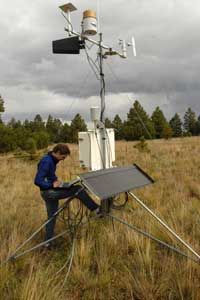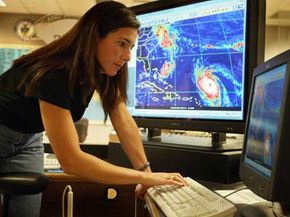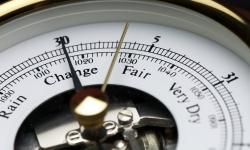Imagine for a second you weren't a human reading an Internet article and instead were a flea -- and not just any flea, but a flea living its entire life in the fur of a grizzly bear. Given such a hostile environment, you'd need to nail down a few facts to stay alive. Where does the bear scratch or bite most often? When does it sleep? Where's the best blood? How ferociously has it gone after its parasites in the past, and how might it behave in the future? If this sounds like a stressful existence, just consider the bear of an environment we live in every day.
Human beings make their home in the outermost region of Earth's crust, a 5.5-quadrillion-ton (4.99-quadrillion-metric-ton) layer of gases we call the atmosphere. As with our exemplary flea, our lives depend on exactly how the environment around us behaves. In its tamer moments, the weather nurtures our crops, gives us clean air to breathe and provides generally comfortable surroundings. But at its worst, the atmosphere, which is covered in depth in How Weather Works, delivers lethal frosts, searing heats, destructive floods and storms capable of laying whole cities to waste. Like any survival-savvy parasite, it pays to know what your host is liable to do next.
Advertisement
If you've ever rushed off to school or work in the morning without first checking the weather forecast, you probably didn't experience the equivalent of being raked with a bear claw. Maybe you slipped in the snow or the commute was a bit sluggish, but oh well, right? At the end of the day, you're probably still going to eat a hot dinner in a warm home.
Our lives haven't always been so weatherproof, though. In developing nations and harsher environments, daily survival still depends on Mother Nature. Despite modern safeguards against drought and flood, the weather can still hurt food and water supplies even in the most advanced nations. But in the ancient world, the ability to use past and present observations to predict weather patterns made you more than a weatherman -- it made you a shaman, a prophet and even a leader. Today, meteorologists augment observations with modern technology, physics and statistics to perform a no-less vital service, but we don't necessarily regard them as prophets.
In this article, we'll examine meteorology, the scientific study of the atmosphere and the myriad phenomena that keep it constantly swirling and raging all around us.
Advertisement





